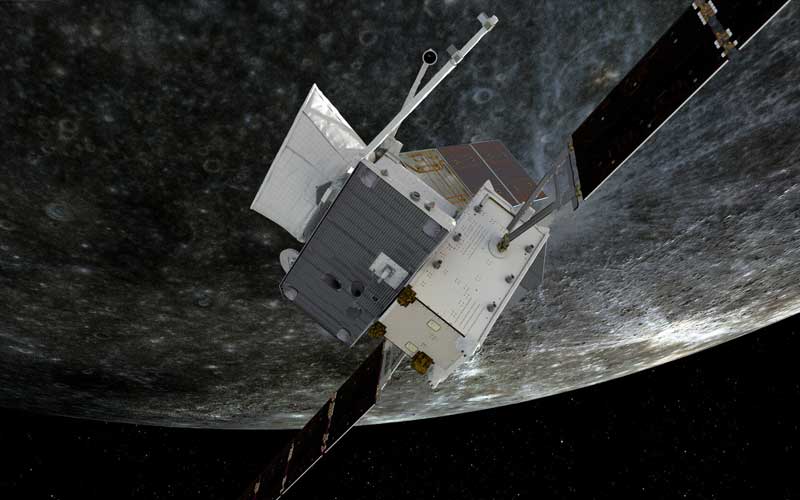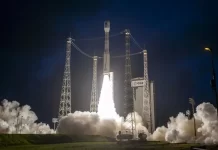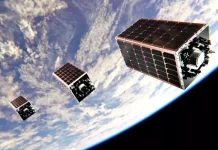
The European Space Agency has announced that persistent issues with the BepiColombo Mercury Transfer Module’s thrusters will delay its arrival around the closest planet to the Sun by 11 months.
BepiColombo was launched aboard an Ariane 5 in October 2018. The mission consists of two complementary spacecraft: ESA’s Mercury Planetary Orbiter and Japan’s Mercury Magnetospheric Orbiter. The primary objective of the mission is to perform a comprehensive study of Mercury, including its exosphere, magnetosphere, and both its interior and exterior structure.
The two satellites that make up BepiColombo are being carried together aboard the Mercury Transfer Module (MTM). On its way to the closest planet to the Sun, MTM is performing nine planetary flybys: six at Mercury, two at Venus, and one at Earth. These flybys are required to slow MTM enough to allow for a successful orbital insertion around Mercury.
In April 2024, the MTM spacecraft started to experience an issue with its electric thrusters, which prevented them from operating at full power. After several months of investigation, engineers have narrowed down the cause of the issue but have been unable to remedy it. As a result, the thrusters will continue to operate below the minimum thrust required for orbital insertion around Mercury in December 2025, as planned.
In order to work around the issue, ESA’s Flight Dynamics team has conceived a new trajectory for the mission. This new trajectory will see BepiColombo approach closer (by 35 kilometres) to Mercury than originally planned for its fourth flyby of the planet. This will reduce the propulsion needed for the fifth flyby. The six flybys can then be used for BepiColombo to branch onto the new trajectory.
The fourth flyby will occur later this week. The fifth and sixth flybys are planned for December 2024 and January 2025, respectively.
While this trajectory will maintain the baseline scientific mission, it will delay BepiColombo’s arrival at Mercury by 11 months. The two spacecraft are now expected to enter orbit around Mercury in November 2026.




